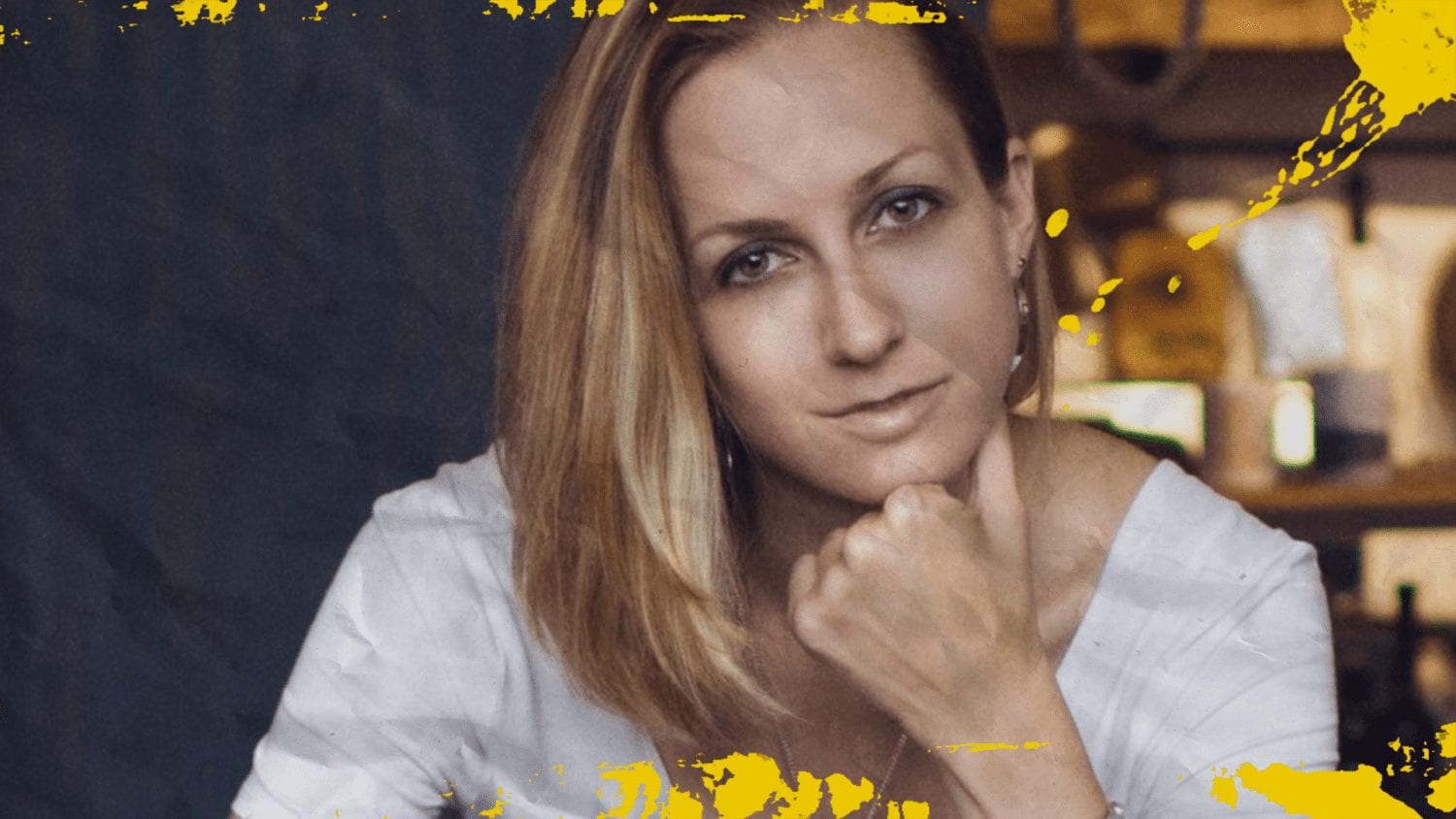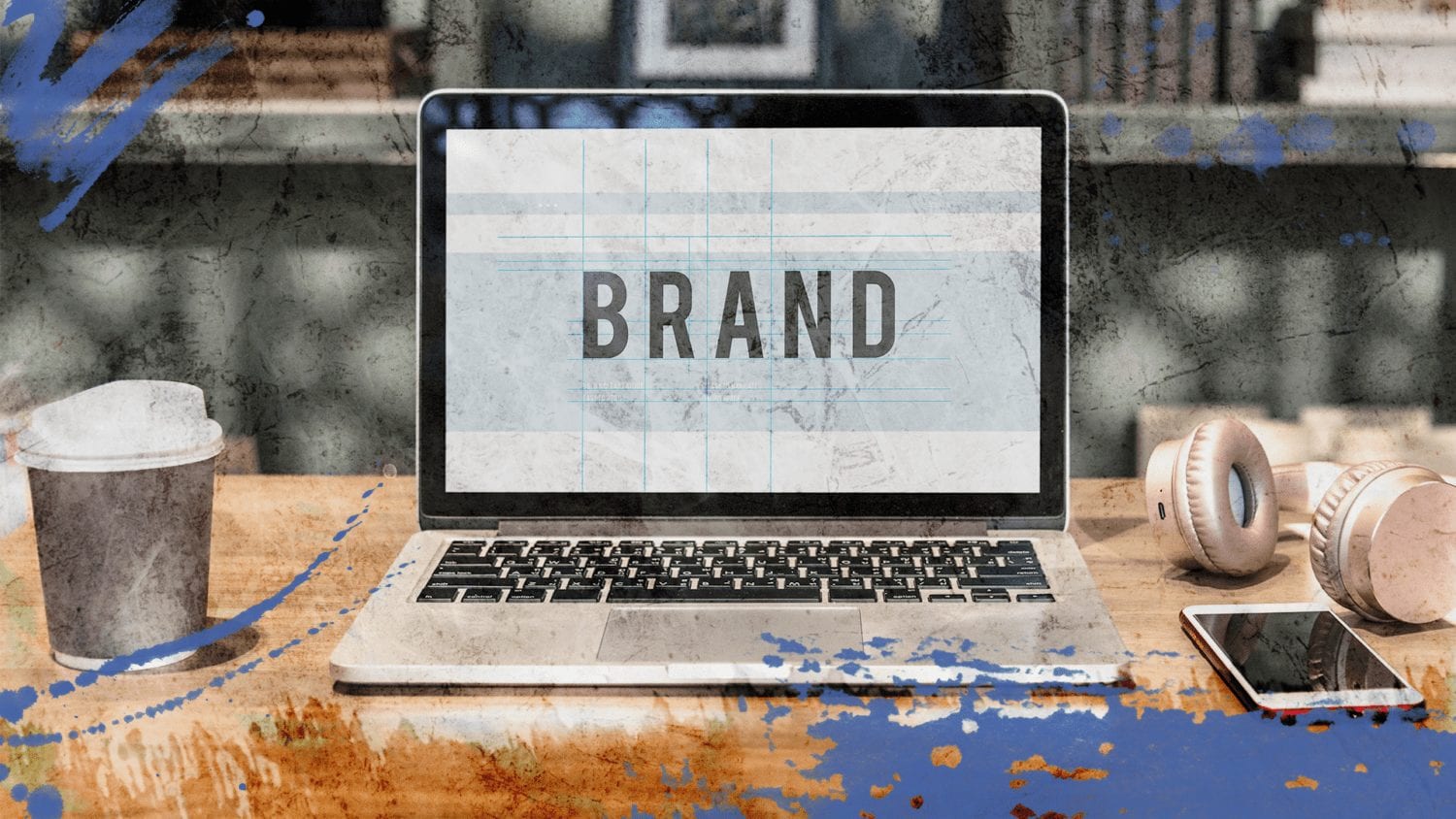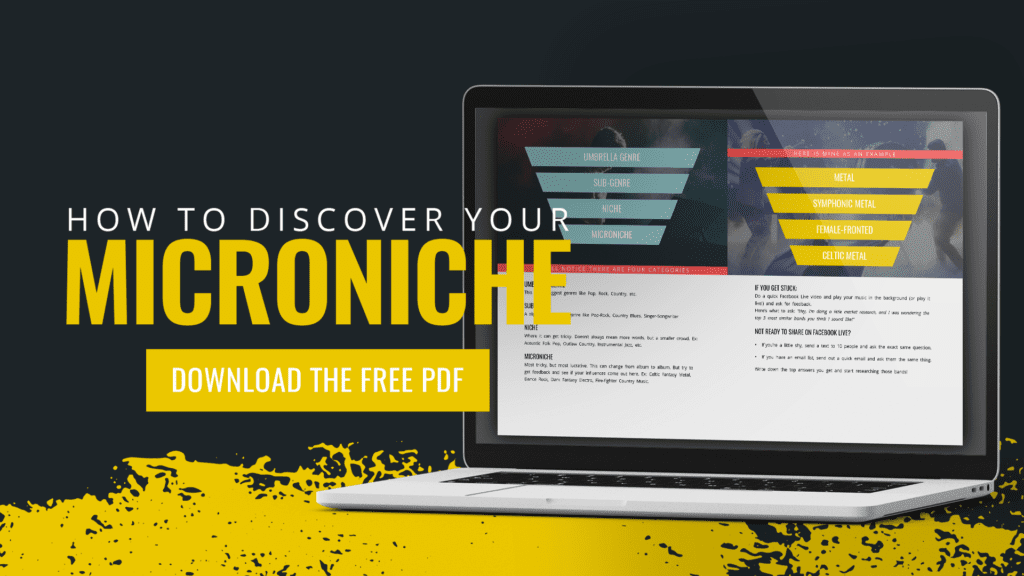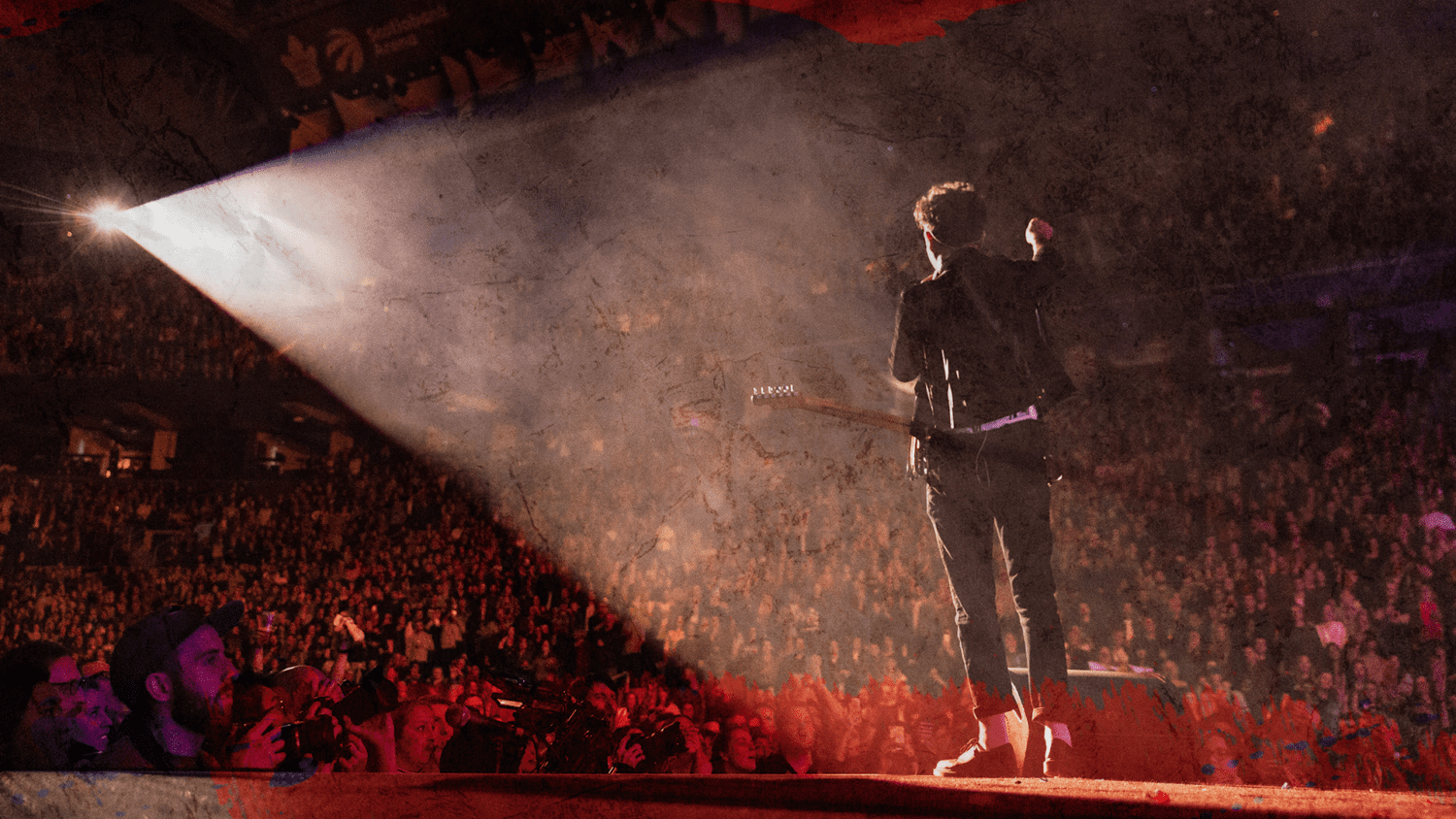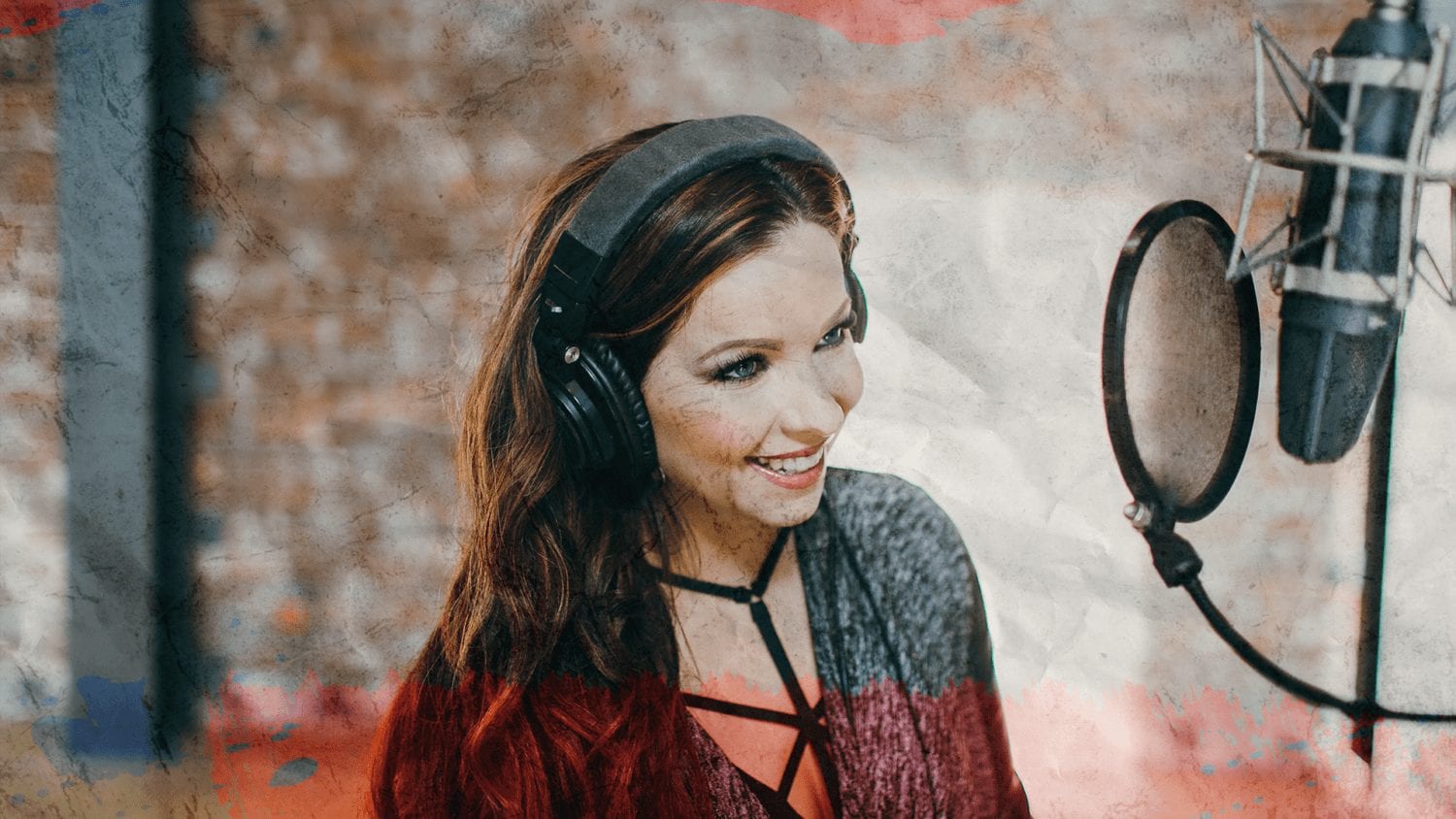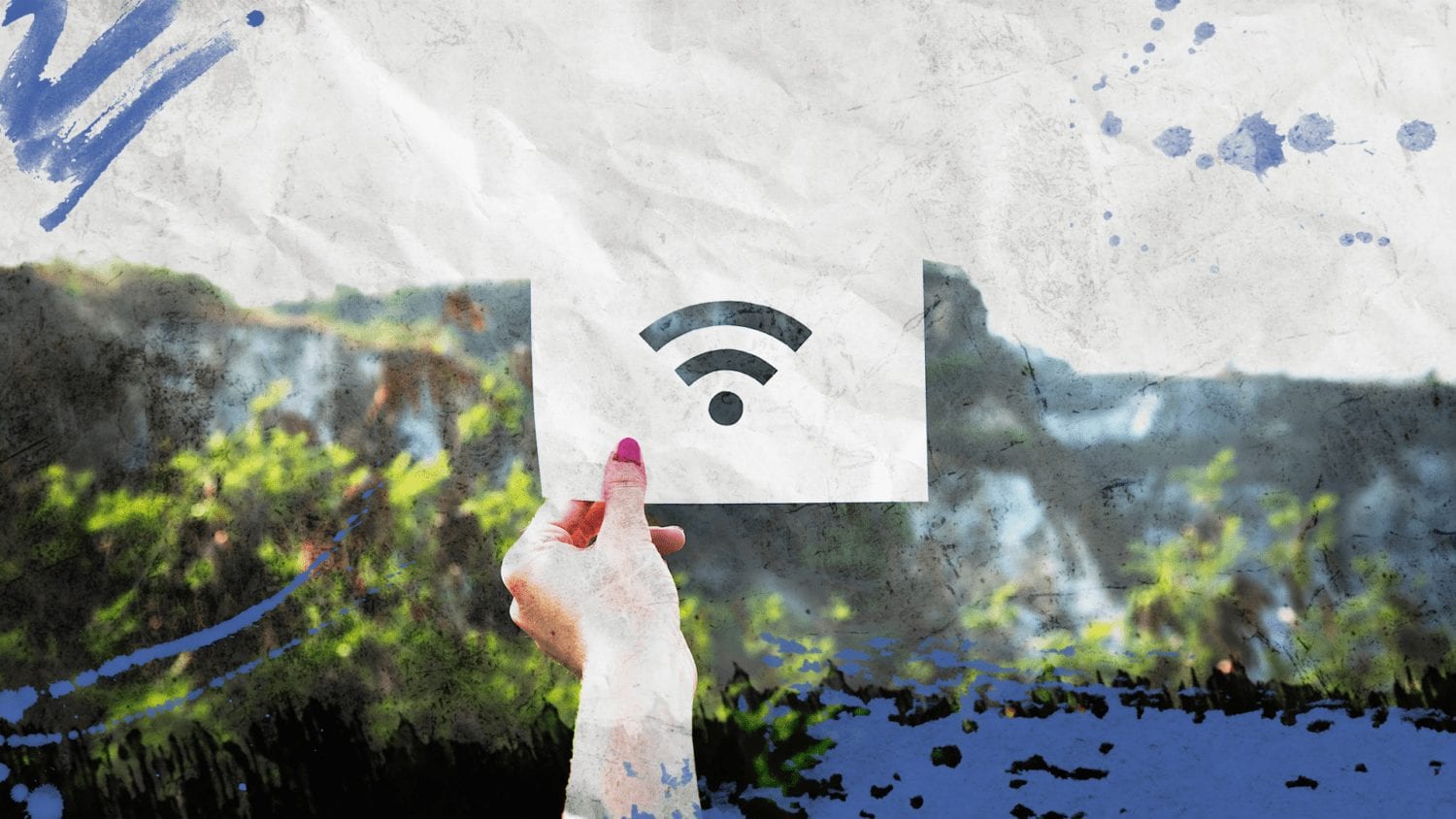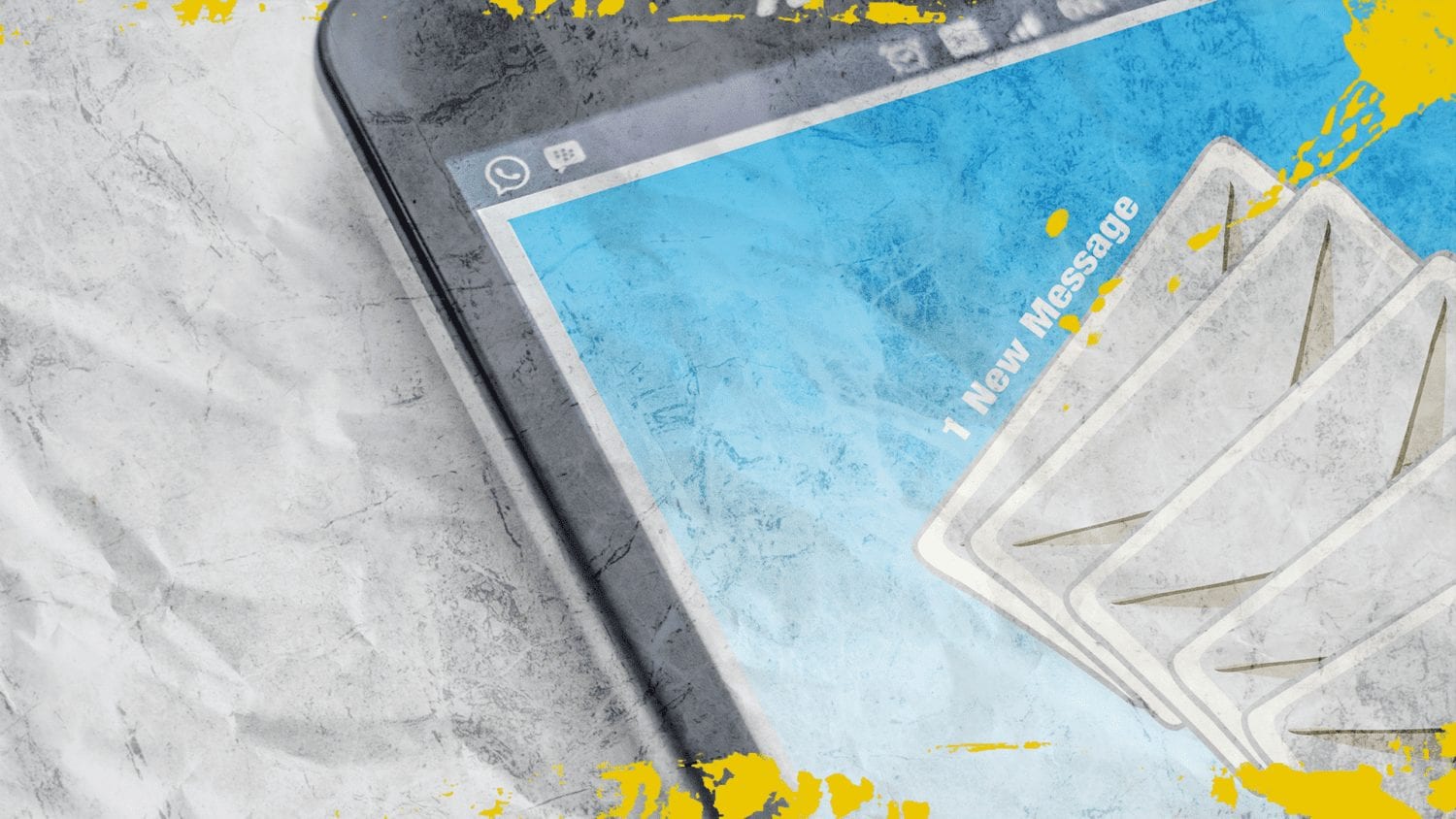
Today on the show Leah and CJ are giving you the tools and motivation to start implementing your plans, no matter how big or small they are. The conversation starts off with an exploration and definition of the word ‘implement’ and how it is being used in the context. From there, our hosts go into getting down to action and putting a halt to the delays that keep us from achieving. Leah explains the process that led up to her becoming the action and result-driven person she is, making conscious decisions and focussing on the pleasure of attaining goals. The discussion covers the fear and pain around doing the work, how little is actually standing in your way, intentionality and consistency and the fundamental nature of follow-through. CJ makes a strong argument for rewiring your brain for achievement, something that may be eluding you if you are experiencing small defeats on a consistent basis, he believes that by getting in an achievement-oriented mindset you can grow from success to success. For all this and more super helpful strategies, be sure to tune in today!
Key Points From This Episode:
- A result-oriented mindset and how central that is to our work at Savvy Musician Academy.
- This week’s student spotlight message!
- Defining today’s all-important word: implement.
- Avoiding delay and getting into action on strategies
- How Leah became an action-oriented type of person.
- Weighing different pains and choosing the path that has results.
- Intentionality, envisioning your actions and consistent in your strategies.
- An imaginary exercise that can jumpstart your action process.
- Wasting time and money on programs while not showing up and following through.
- Rewiring your brain, your habits and the things you do day in and day out.
- Higher levels, bigger devils; the climb continues.
- And much more!
Tweetables:
“The word implement means to put a plan into effect. What good is a plan if you don’t implement and follow through.” — @metalmotivation [0:06:32]
“If you study successful people in history and current successful people, billionaires and all that, you’ll find that they’re all action takers.” — @LEAHthemusic [0:07:56]
Links Mentioned in Today’s Episode:
Superman System Elite — https://savvymusicianacademy.com/elite/call/
Savvy Musician Mastermind on Facebook — https://www.facebook.com/groups/savvymusician/
Savvy Musician Spotify course — www.savvymusicianacademy.com/Spotify
CJ Ortiz — http://metalmotivation.com/
Jaqueline Caruso — https://www.thegalaxyelectric.com/
Click For Full Transcript00:22 CJ: Welcome to the Savvy Musician Show. This is CJ Ortiz, branding and mindset coach for the Savvy Musician Academy, joined once again by the lovely Leah McHenry. How are you doing, Leah?
00:35 Leah: Good, how are you?
00:36 CJ: Awesome, always a pleasure to sit across from you if you want to call it that.
00:41 Leah: Yeah, we’re doing this virtually.
00:43 CJ: That’s right, we can see each other, we can certainly hear each other. But again, always a pleasure to be on this podcast, we’ve been getting such great feedback, we want to thank everybody who has taken the time to leave a review and give us some five-star ratings on the respective podcast channels.
And that’s always something that you can do, we can’t say this enough, please, just do us that solid, get on Spotify, iTunes, Google, wherever you hear this podcast, Stitcher — and leave a comment and review it, give us some stars so that we can keep rising up the ranks, we want this to be the number one show for music marketing and it may be, Leah. I have no idea. But I know it’s to get a lot of downloads but not enough for you.
01:33 Leah: Yeah. Well yes, we do want to be the best that we can be for everybody. You know, I have other colleagues in the same industry who are out there teaching and they’re all experts in their own fields, we all l have something different to offer. It’s all about who you connect with and who you can learn from but I’m definitely competitive, that’s for sure. In a healthy way, I want to be the best. I want to offer the best information I can and it’s only going to benefit you.
02:02 CJ: That’s right. I’ve had so many conversations with Leah about opt-in rates on an ad campaign or downloads of a podcast or views of a video or sales of an album, et cetera. There’s never been a time where she did not talk about getting the numbers up. But, never once did she ever talk about going off and buying something crazy or doing something weird with money, we’ve never had that conversation.
I know she is a results-oriented kind of person and it also shows up in what she does for her students, I see this all the time, she wants them to get those phenomenal results. Leah, to be honest with you, it’s great. Because I deal with a lot of people, it’s great to deal with someone who is very results-driven and we want that in those who are part of these courses and the Elite Group, right? We want them to be numbers-oriented.
03:04 Leah: Yeah, I mean, you can be artsy-fartsy all day long but at the end of the day, what’s going to matter is what were the results that were accomplished because at the end of the day, we all have bills to pay, money makes the world go round, none of this – we can’t do anything without the money so that’s right, results matter, you know?
In your campaigns, what you’re doing with your music, your email list, all that stuff matters, the numbers matter and everything I teach has to provide a result, I don’t teach anything unless it’s getting me a result and that’s my standard.
03:37 CJ: Yeah, a lot of planning and things go into that and a lot of follow-through goes into that, to create these kinds of results and that’s kind of what we’re talking about today Leah, we’re talking about the keys to implementing your plans and ensuring that you will take action. You get this question a lot, don’t you?
03:56 Leah: I do, we have a lot of people who are asking, you know, “I got a plan or one of the programs and I’m you know, I have my goals that I want to accomplish but how do I make myself to do it because it’s so hard, I find myself falling off the wagon, I have a hard time sticking to things, life gets in the way, schedules change and there’s just like, I have curve balls thrown at me and I just can’t seem to get to the end result that I’m after.” So we hear about this a lot.
04:24 CJ: If we’re going to talk about today in Episode 55, I want to start with just a student spotlight, these are always cool, today is from Jacklyn Caruso who gives us a win from the Elite Group who said, “I just wanted to share some of the success I’ve been having on Facebook and Instagram with engagement. This has been a goal of mine forever but more recently, after our call, with one of the coaches, it became a main focus, we’ve learned that before our ads can perform well, our posts need to perform well with the audience we want to cultivate.”
She said, she shared a couple of posts that have blown her away, where she was putting some of these principles into effect and they have proven effective, she says, “I’ve been testing and hoping for things to work on my pages for almost three years now. But once you know the principles, you don’t need to hope anymore, I want to encourage you, the other students, to keep testing the principles and building the confidence to achieve great success. Small successes keep me going on this long climb to a sustainable music business.”
That’s pretty cool.
05:25 Leah: Right on.
05:26 CJ: Applying the principles, she’s been struggling with this for three years but she finally, the coin finally dropped after a call where she realized just how important that engagement really was. She needed to see things differently. But, there’s no – I love that — you didn’t see that but she actually put the word hoping in quotation marks.
Because the point being is that there are principles taught here Leah, that as you said, it’s all about the results and so that’s what we’re trying to get these students to experience. Nothing is as motivating as results — when you could have listened to a hundred motivational speakers and nothing is going to bring more motivation out of you, your own motivation than you getting to see some results and some problems solved for your music business. I know that’s a huge thing.
Yeah. I want to start with a simple definition, okay? We’re going to define the word ‘implement’. Because that’s what we’re talking about. Keys to implementing your plans and ensuring you got to take action.
The word implement means to put a plan into effect. What good is a plan if you don’t implement and follow through. Leah, I know a lot of very successful people, I know a lot of hard-working people, you’re probably one of the biggest planners implementers I think I’ve ever met. Let’s start with you, talk to us about implementation.
06:59 Leah: You know, that’s funny you say that I’ve heard that from others as well, like coaches of mine, mentors of mine, they’re always amazed whenever they give us advice. We immediately go to work on their advice and of course we get really good results because I don’t delay. If there’s something that’s going to work better than what I’m currently working, I put it into effect right now. I don’t wait for a rainy day, I don’t wait for – well, it’s not really a good time for me to do that, I have other important things, I clear my schedule and I go, I’m implementing this thing right now.
What do I need to do to reverse engineer this, what do I got to do, let’s do it? I think there’s something to be said about not procrastinating, not delaying and being an action taker. I think if you study successful people in history and current successful people, billionaires and all that, you’ll find that they’re all action takers, they don’t hum and haw about things. They don’t take forever to make a decision, they usually make quick decisions, not because they’re rash but because they know time is of the essence and they have enough wisdom and experience that they can make good decisions, we’re not always going to make good decisions.
Sometimes it will be a mistake, so what? You’ll get over it, you’ll learn. But make a decision and then move on it. Move, don’t sit there and think about it, that’s not helping you. That’s one thing I guess that part comes natural to me, does not come natural to everybody. Let’s just get that out of the way, it might be extremely uncomfortable for you to do that and that’s okay. But do it anyway.
08:40 CJ: Well, let’s unpack this a little bit in reference to you. Do you feel like this is just more your natural way of looking at things? What made you this, tend to be a more action-oriented type of person.
08:50 Leah: You know, I think it all really changed for me when I started doing this in my own music business. You know you come to a point where you can read and read and you can consume. You’re no better off than you were a year ago. Until you actually do something and you put your money on the line and you take a risk and you actually take that leap of faith and start implementing and don’t worry so much about the risk as the results.
When I started getting results in my music business, it was like, hey, when I put something in motion, things happen. It’s really weird how this universe works when you take action, it actually produces something, a result. I don’t mean to sound all metaphysical but it’s a fact. Actually, sometimes, it blows my mind about how thoughts have such an effect on people. They’re intangible in a materialistic world, thoughts shouldn’t mean anything, really, if you think about it, they shouldn’t have any effect. I could say, I’m a triangle, right? Or whatever, and it shouldn’t have any effect, it shouldn’t have any meaning but because thoughts have meaning and they have substance.
When you take an action in the world, it will produce some kind of results, whether it’s a reaction or something. It just encourages you, when you actually see the effects of that activity, it’s like, the more I do, the more effects that’s going to have. Yeah, I find that incredibly motivating. If I want to make a thousand dollars in my music business, all I have to do is come up with a sale or send these emails or put up this ad.
If I take this action, I will get a result. It doesn’t always mean that it’s a result I would like but it will – right? Because that’s the reality. But, it will happen. I’m encouraged by that. It sounds so simplistic but –
10:45 CJ: Well that’s the thing, it’s so simple that people work overtime to help us misunderstand it and I mean, whether you take action or don’t take action, you’re going to get a result, right? It definitely will not be the results that you want, there’s something very true to the premise that the two motives for what we do is either to avoid pain or gain pleasure.
Leah, at some level then, for those who struggle with putting a plan into effect, they’re trying to avoid pain, has to be, because if the action would create obviously, pleasure — because it would create results that you want, sales for example, then why would you avoid that pleasure unless you fear the greater pain?
The greater pain is taking action. We can call it laziness, we can call it procrastination but it really is what you said, it’s a way of thinking, it’s a way that your thought processing is to where you honestly believe, the pain of doing the work is greater than the pleasure you would get from making sales. And that’s just weird.
12:05 Leah: Yeah.
12:05 CJ: People literally do that. Why else would they avoid the work?
12:09 Leah: I always say, pick your pain, it’s all painful in a way like having to do it, stick with something, be diligent, even when you hit bumps in the road, even when it’s not easy, you know, similar to an exercise program or a diet or something. You know, you have the pain of that discipline, of putting in the work and sticking to something or you can have the pain of not doing any of it and being worse off.
You know, pick your pain but the thing is, by sticking to your plan, by sticking it out and being disciplined and you are also in addition to that pain, you’re going to have this huge reward at the end of it too. I’d much rather have that pain than the other one.
12:54 CJ: Absolutely. I agree wholeheartedly. It is a distorted way of thinking and you know, if you do think that way, don’t feel bad initially, we’re not here to shame you, we’re not here to make you feel bad, if you’re guilty, just raise your hand, say guilty, I throw myself on the mercy of the court and it’s done with it.
Guilt and self-condemnation, feeling that about this thing is not going to help you get any — help you get your goals made real any faster. You can’t get there faster by feeling bad about yourself. But, if the shoe fits, that’s good. Because you know why? Because we can change you, okay?
13:30 Leah: That’s the good news.
13:31 CJ: That’s the good news, we can change you, if this is just the circumstances of the musical gods, have just chosen you to never be able to fulfill your dream of being a full-time musician, we can’t change the view of the musical gods, that’s just life. Life has allotted you for failure, there’s nothing we can do, there’s no point in even trying. You’re just destined to fail. We know that’s not the case.
The problem is all on our end. We can change that. Don’t feel bad if you feel this way. Let’s just change it, let’s make some adjustments in your mindset. Like for example, we just talked about our motives being the avoidance of pain or the gain of pleasure. If that’s the case then we need to beef up the other side, right?
My guess would be, Leah, that in your case, you do well at this because you have a pretty solid grasp of the results, you have a pretty solid grasp of the feeling that you’re going to have if you get these particular results. You look – what that does is that minimizes your view of the pain, you don’t dress up the pain, you don’t exaggerate the pain, right?
14:37 Leah: I put little very focus on my current discomfort and I put a lot of focus on what I want my future to look like. In fact, I probably put like 90% of my focus is on what do I want this to look like, what I want the result to be and I just focus in on that. My current discomfort in getting there is irrelevant, it is not important.
Just do what needs to be done. You know, for that reason, I mean, there are a lot of people who struggle so bad just getting the motivation to get out of bed and I just don’t relate to that mentality at all because I can’t. I’ve got this fire in me to want to keep making music and I can’t stop even if I wanted to.
My brain will start writing music in my sleep if I stop long enough. It will. I think a lot of people will feel the same way and the same thing with teaching. I think there’s a lot of people, there are times where I get sick and tired of dealing with people and dealing with whiners and complainers and needy people and this should be free.
I get sick and tired of it. I think, “I want to quit, I don’t want to do this anymore. You guys suck.” There’s other people that you know, I don’t think I can quit even if I wanted to because it’s in me, I’ve got this drive, I need to share, I have to share. I feel obligated to share what I’m learning with the world. That drives me forward and my current discomfort doesn’t matter.
What matters is making an impact and we are laying the groundwork right now, in a society that is extremely entitled, a society that is extremely self-centred and narcissistic and they want all the benefits without putting in any of the work, this is the society we’re dealing with right now. In the music industry, we’re dealing with people who have no idea what to do with their career because of the internet and all this stuff.
We’re laying our groundwork here that hopefully will have some amazing positive ramifications for years to come and for that reason, that keeps me going.
16:40 CJ: Yeah, you know, I get this a lot Leah, on my side of things for those who don’t know, I have my own project that I do called Metal Motivation, it’s a motivational content and coaching and personal development for people who love – really for anybody but that’s just sort of the brand that it’s under. I get that a lot too where people will write in and say, “Yeah, CJ, what about the person who doesn’t want to do or struggling all the time.”
Can’t get themselves out of bed and like yourself, I’m just like, well, I don’t understand that mentality, I don’t understand that way of thinking and then people will come back to me and say, “Yeah, but that sounds elitist.” I said, “It’s not elitist at all, not at all.” “Well then, shouldn’t you be doing something for those people who can’t seem to get out of bed and can’t get themselves to do things?”
I said, “No. I’m not designed for them, I’m not called to them, at least not now.” They say, “Well how will they get any kind of help?” I said, “Listen, this is why you have to look at. I’m there for the person who’s ideal for me, who is trying to really do something, needs some more information, needs some more help but they’re ready.” They’re ready for the teacher, they’re ready for the coach. If these other people, you know, they want more out of life but they’re not willing to put any effort into doing it, right? If they’re not willing to put an effort into go get something out of life then I will allow life to coach them.
17:59 Leah: Yeah.
17:59 CJ: And life will coach them with pain and so at some point then, the pain of staying where they are will exceed then the pain that they are afraid of, of doing any kind of work and then they’ll eventually take action. That’s when they’ll start to take action. The discomfort has to become really uncomfortable before they’ll get out of this mediocre stage of just settling, compromising and complacency and apathy.
It’s not going to happen until that discomfort gets uncomfortable. Now part of my job as a coach, however, some have mentors. I’m a tormentor. So that means sometimes I may try to make you a little more frustrated with where you are. You are not frustrated enough, you are not uncomfortable enough but like the mother eagle, I’m going to stick thorns in the nest because it’s time for you to get out of the nest. It is time for you to take flight.
It is time for you to take some action on these things and you are never going to get there until I kick your little furry butt out of the nest. And you know so to do that means I need to paint a picture of what your life could be like and Leah, you do that all the time, painting a picture for people using your own example of what their music business could be like. Imagine what it would be like if you could even if it is just a great part-time income with your music. I mean most people would be happy with that.
19:21 Leah: Would you really complain if that was your situation a year from now?
19:22 CJ: Yeah, would you really complain. Well, the only thing that is standing in the way is just the investment of time and effort that’s it.
19:30 Leah: Yeah and the whole consistency thing. You said something in the past that I’ve talked about in workshops that we’ve done since then about the whole, “I’ll believe it when I see it,” thing where we actually – I don’t know, you said this also but I heard that people don’t actually do anything like go get a cup of coffee unless they first envisioned themselves doing it.
Like you don’t make a decision to even get in your car and go somewhere. Unless you first had a mental picture in your mind of you getting in there and doing that thing. So you first envisioned it and then you took action. So when it comes to implementing, I think you just got to be way more intentional about it. Those things that they were doing are automatic then the everyday life scenario but when it comes to building a business, building your music career, creating sustainable monthly income you have to be so much more intentional with it.
So we talked about being an action taker moving quickly, move now if there is a training that you need do it now. Don’t wait that is really important. All successful people have that one thing in common and then also being intentional about picturing what you want that future to look like and it sounds like I am not a big fan of the woo-woo whatever manifestation crap out there. I am not going to hide that. I really don’t like a lot of it. I think a lot of it is garbage.
But there is something really to be said for being super intentional with what that is, what does that look like. Even if it is just a certain amount of like a number of income, you want a thousand dollars a month consistently. That is a great place to start. So that is being intentional and picturing it, what would life look like when you have that thousand dollars coming in consistently every single month, what are you going to do with it? Are you going to reinvest it? Are you going to blow it?
What are you going to do? So there is something very – and something does get loosed I think when you say something out loud “I want to do this,” and then you put actions behind it, something very powerful happens.
21:36 CJ: Yeah and you are always going to be motivated by results. So that’s why I will often tell people to get their physical health in order. So diet, nutrition, all of that sort of thing because you need to see tangible results in something in order to train your mind, to believe that you are not just blowing a bunch of law of attraction nonsense into your head that you are seeing very real-world results.
But in another side and I do this exercise with a lot of people when it comes to procrastination or when it comes to laziness and it is just a simple visualization exercise you can do any time, if you need to clean your room, organize your garage, if you need to get to the gym, I don’t care what state of mind you are in, I don’t care if you are – picture your most lazy time, on the couch, you’ve been there surfing channels, eating a bag of chips, the last thing you want to do, it’s a Sunday afternoon is go to the gym and get on the treadmill. It’s the last thing in your mind.
You are tired but you’re stuck now. You’re stuck because you’re in this habit of laziness and surfing and you know the TV. In that moment, just do this, just close your eyes and for just a couple of minutes, I just want you to picture yourself doing the very thing that you don’t want to do. So picture yourself driving to the gym real quick, getting on the treadmill but just picture yourself happy about it, excited about it and then picture yourself running on it, smiling and just picture it.
Okay now open your eyes and then look around the room and there’s the TV on, there is the bag of chips on your lap. Now close your eyes again and let’s do it again and let us make the smile even bigger on your face and let’s see yourself doing – now let us see you lifting up some weights and you know, focusing on your muscles and just doing things and being really happy about it and just keep seeing that for just two or three minutes.
We could do that. I could have you stand in front of a messy room and have you close your eyes and picture yourself picking up that room, seeing the end result clean and all of that then open your eyes, you see the dirty room. Close it again, envision the same thing again. What will happen is your feelings are going to follow your consistent thoughts. It’s as simple as that and so I guarantee you, you do that for five to 10 minutes sitting there on that couch and you will get up and turn it off.
You will put that bag of chips aside. You will get into your car and you will go to the gym. I guarantee it. You are not as lazy as you think you are but that is the key, think you are, right?
24:15 Leah: That is really good. The whole of your feelings will follow your thoughts.
24:19 CJ: Yeah.
24:20 Leah: That is very – so if you are intentional about your thoughts you’re saying the feelings will follow that. That is really powerful for those who do –
24:28 CJ: And those who want to.
24:29 Leah: Yeah, for those who do struggle with motivation, maybe is there something we can speak to about consistency because I know that that’s a big thing for people when they say, “Well I have those plan and I am going to start it but I am not good at staying on track.”
24:43 CJ: Right, I think everybody – you know we all understand how many days, the debate about how many days that it actually takes to create a habit. I think the most important thing that people have to get into is today. You know it’s like the concept of worry, right? You know, tomorrow will worry about itself. Yesterday is obviously already gone. The only thing you truly have is today and so that lightens your load a whole lot, right?
Alls you got to do is create today but I think the important thing is when somebody – because I get that question often is about they have a problem with – they say, “You know, I get excited about things and I get started okay but then I fall back to my same old habits. So how am I going to get this type of consistency?” And I say well the problem is not that you struggle with being consistent in that one thing you are trying to do. The problem is in your mindset altogether.
Which means then you have to get a taste for achievement and that is a thing we don’t have. We don’t have a taste for achievement and because we don’t have that taste, we’re inconsistent and because we are inconsistent, we lack something and that lacking is confidence and confidence is based on the word confide, right? If I confide in Leah it’s because I trust her to keep the information secret. I confide in her but it’s taken from the word ‘fidi’ which means belief, right?
So if I believe in Leah then I know she is going to show up when she says she is going to show up. I know she is going to do what she says she’s going to do, right? So I have confidence, confide, fidi, I have confidence in Leah that she’s going to do what she says she’s going to do. We don’t have confide or confidence in ourselves. We don’t believe in us. But why would I believe in Leah and not believe in me? Because Leah has given me evidence of it, right?
She has proven herself to me. All I need to do is to prove to me that I can do things on a regular basis. Well then how do you do that? You have to make it less daunting. In other words, the most important thing you can do is not so much – even if I told you to put certain plans that you are struggling with on hold for a little bit. I just want to spend a couple of months with you teaching you how to get a taste for achievement. Teaching you how to get a taste for daily discipline.
And so to do that, I may not need to address these bigger things. We are going to put those on hold because we are going to rewire your brain so that you can do those things. So we are just going to do little things every day because the reason why you don’t confide in yourself, you don’t have confidence is because of a multiplicity of a bunch of little defeats that have added up over time, right? They are just a bunch of little defeats like bricks on a wall that have added up over time.
And how are we going to reverse this is we’re going to get you a bunch of little victories that are going to start add up in the next 30, 60, 90 days. Just a lot of little victories and we’re going to exaggerate these things. So we’re just going to say, hey making the bed, cleaning this or making sure you always – like one of the things that I have here is I do not want to wake up every morning to a kitchen that’s dirty, right? I always the kitchen clean every day. So that’s just simple things.
Okay, every day I will make sure before I go to bed, I’ll take the 15 or 20 minutes it takes to clean all the dishes out or whatever. If I do that I’ll make a big deal about it just like I did when my little kid first ate his peas. We have talked about this before, I wanted him to think that eating your peas is a super great thing.
28:30 Leah: Yeah, make it a big deal.
28:32 CJ: You make it really big, “Yeah you ate your peas, isn’t that wonderful?” Same thing with you. Pick something that you are going to do, two or three things that are small every day. They don’t have to be your big plans. They could be a portion of them, they could just be something around the house. Do something every day and let’s for the next 30, 60 or 90 days whatever it takes for you, let us rewire your brain for being the daily achiever.
28:55 Leah: That’s brilliant. So you guys if you heard this and you are one of those people who asks us about that, I expect that you are going to implement this. This is advice in things that people normally pay for with CJ, so you’d better appreciate it. You better thank him, you’d better leave us a raving review of this episode. I want to hear what your one or three small things are that you’ve chosen to implement whether it’s just like, “I am going to wash my face every morning and before I didn’t.”
I don’t care what it is, if it’s that or making your bed or drinking a glass of water first thing when you wake up, something like that where it is just incremental, small and consistent that you’re doing all the time. You’d better thank him for that. The other thing I wanted to bring up because this is a statistic that Steve actually shared in a group, in our Elite group just to kick everybody’s butt, there is a statistic that he learned that only nine to 12% of people whoever joined a program ever finish it.
And so we were doing that to just light a fire in everyone’s butts because even in our Elite Mentorship Program, people have invested a lot of money into this program, into their selves, into their coaching. There are some people who have barely logged in and it blows my mind. So this happens at all levels by the way whether it is a $10 product or a thousand dollar program or whatever it is, there is people who spend money on the University and missed all of their classes, right?
The problem is not the program, it’s you. You’re the problem and what is with this phenomenon though of people investing into themselves and even sometimes when they have skin in the game, they are still not showing up, they are still falling off the wagon. They are still not logging in doing the work. Why? What is wrong with people?
30:45 CJ: Yeah, the emotional impulse to – you know we do that all the time right? Spend some money because we think we’re going to do something and then we leave it. The membership at the gym or whatever it may be, we spend this money and we don’t do it but like we said before, if we know the problem is us then that is good news because we can always change us, which is why I think what we just talked about is so important that we really want you guys to rewire yourself.
This is a long game we’re in. It is a long game and if you are going to succeed in music, think of it that way. So sometimes you want to get the things and the hardest thing to do sometimes Leah are the things that are the most fundamental, right? People want to jump like you put out a course and there’s level one, level two and level three. People say, “We’ll just send me workbook for level three. I don’t need to do level one or level two.”
For some reason, we are averse to the fundamental things that we need to do that lay the groundwork for the rest of the things that we do and if you are stumbling over something as simple as implementing a course that you have invested a lot of money in, we have a brain problem. We have a simple brain problem and so for you, again I would spend time rewiring your brain for achievement. Because that is all that’s standing in the way between you and your goal’s work. That’s it and you have a problem with work.
32:11 Leah: Yeah, ouch.
32:16 CJ: It’s a four-letter word, w-o-r-k.
32:20 Leah: Oh this is so great you guys. I hope that you are getting a lot out of this because it is even good, it is good for me to hear even though I mean I don’t relate to any of it.
32:30 CJ: Yeah, I have never made a mistake, so we’re just doing this for the listener man.
32:36 Leah: Yeah.
32:38 CJ: No it can get the best of us, all of us at some point and you know, we have a saying is higher levels, bigger devils.
32:46 Leah: That’s good, yeah.
32:48 CJ: So you know, Leah’s success doesn’t mean she’s excused. It just means the burdens and the responsibilities and the disciplines that she has to maintain are only that much bigger.
33:01 Leah: I’m telling you, that is the truth.
33:04 CJ: But all of the victories that she’s done along the way have equipped her for where she is now and that’s part of why the journey is difficult as it is so that – this is why those people who have a sudden rise to success whether they are an actor or musician or what have you, why they fall so hard, is because they didn’t have that arduous journey up to the top. So whether –
33:30 Leah: Don’t have the character behind it to support the success.
33:33 CJ: Yeah, just can’t do it and so yes, achieving success is just another climb up that steep muddy slope but it’s worth it because on top of that mountain as I like to say, on top of the mountain that you are so afraid to climb is a stronger version of you.
33:54 Leah: Amen. That’s good. That is a great note to leave off on too.
34:00 CJ: Yeah, so implement guys. Implement today. Leah, what do you want them to do today?
34:05 Leah: Well, if you are serious about wanting to build your online music business and you want us to help you, you want the accountability because that is one of the issues that some people have with implementing is they just need an extra layer or accountability. Well, we are providing that on quite a big way in a way that I have never seen it done before at all in the music industry and my goal is that nobody will. We are here to serve, we are here to help you implement.
That is what we’re all about and if you want that level of accountability and implementation, we are ready to speak with you on the phone. Give us a call at callsma.com and book a call and we’ll definitely help you out and see how we can hold you accountable to your goals.
34:51 CJ: Awesome and again guys like we said before, please leave a review, give us some stars and we want to take this to the top and produce more results for the Savvy Musician Show.
Once again, this is CJ, what a pleasure to be with you again, Leah. Thank you, sign us off.
35:08 Leah: See you later guys.


